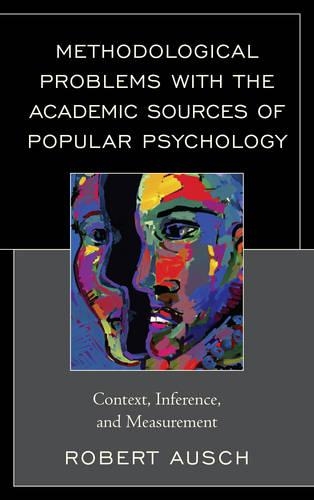
Methodological Problems with the Academic Sources of Popular Psychology: Context, Inference, and Measurement
(Hardback)
Publishing Details
Methodological Problems with the Academic Sources of Popular Psychology: Context, Inference, and Measurement
By (Author) Robert Ausch
Bloomsbury Publishing PLC
Lexington Books
19th February 2016
United States
Classifications
Tertiary Education
Non Fiction
150.72
Physical Properties
Hardback
236
Width 157mm, Height 239mm, Spine 23mm
531g
Description
Methodological Problems with the Academic Sources of Popular Psychology: Context, Inference, and Measurement examines the relationship between academic and popular psychology from a critical perspective with a focus on issues of methodology. The monograph traces the path from ideas in reputable popular psychology back to the original academic research tradition from which the claims were generated. It also addresses the conceptual and methodological controversies with respect to the original research typically ignored or played down in popular writing. This book covers a range of topics including the question of universal biases in judgment, resurgent notions of fast thinking and a cognitive unconscious, the psychology of happiness and other positive psychologies, the effects of parenting on child outcomes, and more general issues related to psychological tests and measures. The methodological problems that emerge include problems with generalizing from specific experimental conditions, highly biased sampling, lack of replication of findings, lack of shared referents across subfields, even different authors, as well as confusion around basic statistical and mathematical issues. Methodological Problems with the Academic Sources of Popular Psychology: Context, Inference, and Measurement reviews these issues extensively, offering both a sense of the history and pervasiveness of these issues in the field itself and an opportunity to review and master these difficult ideas.
Reviews
Psychology is both produced and consumed. Robert Ausch brilliantly traces the rise of psychology to being a consumable and explores the gap between psychology as understood by its producers and the manner in which, in its pop form, it is consumed. In the process he deeply examines problems in both the production and the consumption of psychological insights. -- Joseph Glick, The Graduate Center, CUNY
Author Bio
Robert Ausch is assistant professor at New York University.
